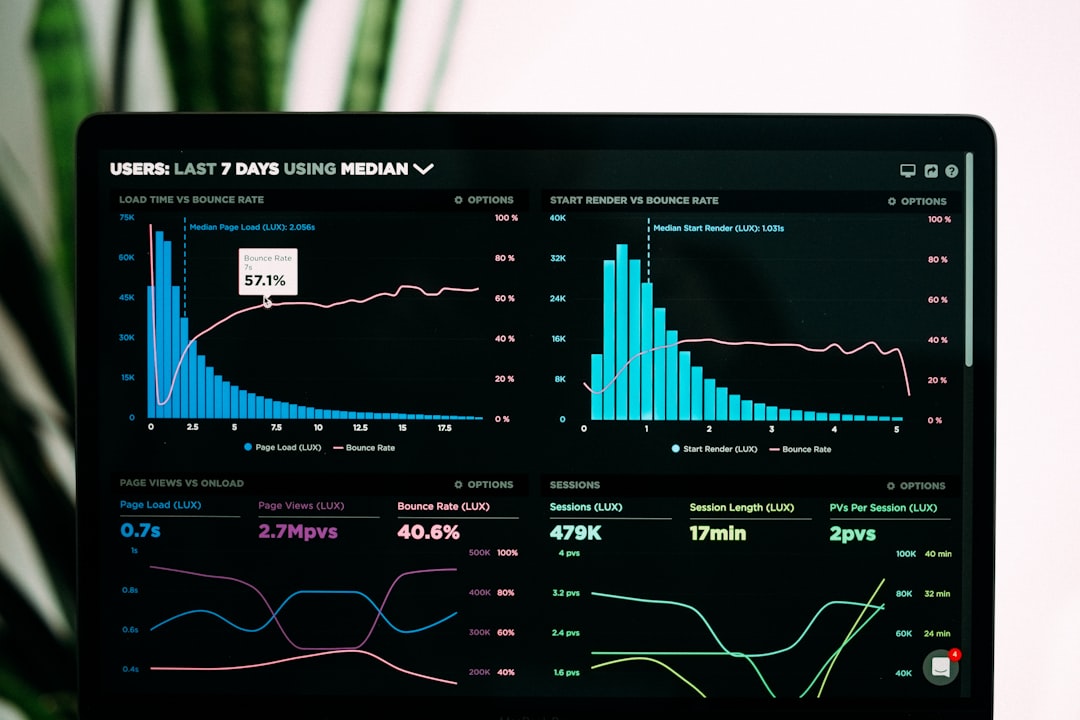Unlock encrypted content
Please enter your SSCE key to initiate on-the-fly decryption.
Decryption key: (Click cancel if you don't have the key)
Copied link to clipboard.
This feature is unavailable for free accounts. Upgrade now and enjoy all Premium benefits.
Go Premium!
This feature is unavailable for free accounts. Upgrade now and enjoy all Premium benefits.
Go Premium!
Please open this page in browser ( Google Chrome or Safari ) to use this feature.
Open In Browser
The Future of Data Storage: Nanotechnology and Smart Homes.
Random related video for this blog.
Copied share link to clipboard.
In today's digital age, data storage has become an integral part of our lives. From personal photos and videos to important business documents, we rely heavily on the ability to store and access our data from anywhere. With the rise of technologies like nanotechnology and smart homes, the future of data storage is set to revolutionize the way we store and access our data.
Nanotechnology Data Storage
Nanotechnology has been a buzzword in the technology industry for several years now. This field of science deals with the manipulation of matter at the nanoscale level, which is roughly 1 to 100 nanometers in size. The potential of nanotechnology in data storage lies in its ability to store data in smaller and more efficient ways.
One of the most significant advantages of nanotechnology data storage is its ability to store vast amounts of data in smaller spaces. This is possible because of the much smaller size of nanotechnology-based data storage devices. For instance, a USB drive that can store 1TB of data using nanotechnology will be significantly smaller than a traditional USB drive of the same capacity.
Another benefit of nanotechnology data storage is its durability. Traditional data storage devices like hard drives and USB drives are susceptible to physical damage, which can result in data loss. However, nanotechnology-based data storage devices are made from more robust materials, making them more resistant to physical damage.
Smart Homes and Centralized File Permissions
Smart homes are another technological advancement that is set to change the future of data storage. A smart home is a residence equipped with devices that can be controlled remotely or automated to perform specific tasks. One of the benefits of smart homes is the ability to have centralized file permissions.
Centralized file permissions mean that you can set access levels for different users or devices in your home. For instance, you can set permissions for your family members to access specific files while restricting access to others. This feature is particularly useful for families with children, where parents can control what their children access on the internet.
Smart homes also offer the convenience of automated data backups. With the bulk uploading feature, you can upload all your data to a centralized server automatically. This means that you don't have to worry about manually backing up your data, which can be time-consuming and tedious.
Smart Cities and Genetic Engineering
Smart cities are another technological advancement that is set to change the future of data storage. A smart city is a city that uses technology to improve the quality of life of its citizens. One of the benefits of smart cities is the ability to use genetic engineering to store and access data.
Genetic engineering is the process of manipulating the DNA of living organisms for various purposes. In data storage, genetic engineering can be used to store data in the DNA of living organisms like bacteria. This means that data can be stored in a living organism, which can then be used to access the data when needed.
Smart cities also offer the benefit of online file storage. With online file storage, you can access your data from anywhere in the world as long as you have an internet connection. This means that you don't have to physically carry your data with you, which can be inconvenient and risky.
In conclusion, the future of data storage is set to change significantly with the rise of technologies like nanotechnology, smart homes, and smart cities. These technologies offer benefits like smaller and more efficient data storage, centralized file permissions, automated backup, and online file storage. With companies like FileLu offering secure and convenient cloud storage solutions, the future of data storage is looking bright.
FileLu offers Premium plans ranging from 256 GB to 500 TB at prices as low as $2.50 per month, and free plans from 10 GB to 250 GB. FileLu offers large file transfer capabilities, allowing users to send files up to 250 GB in size.
By Amelia Isabella.
Email: [email protected]
Related
Revolutionizing Cloud Storage: 250GB Free Storage Plan, Martian Data Storage,...
June 3, 2023
Read More
The Future of Cloud Storage: Real-time Collaboration and Cognitive Computing.
June 3, 2023
Read More
Cloud Storage with Multi-Factor Authentication: The Future of Data Management.
June 3, 2023
Read More
The Future of File Management: Centralized Permissions and Seamless Integration.
June 3, 2023
Read More
Popular
Latest
The Future of Digital Transformation: Exploring Smart Homes, Efficient File...
November 30, 2025
Read More
Exploring the Benefits of Cloud Storage and Innovative Technologies in...
November 26, 2025
Read More
The Future of Technology: Exploring Biohacking, Space Tourism, and Digital...
November 23, 2025
Read More
The Future of File Sharing: Streamlined Workflows for Photographers and...
November 19, 2025
Read More
Exploring the Intersection of Technology: From Cybersecurity to Augmented Reality...
November 16, 2025
Read More
The Future of File Management: Embracing Edge Computing and Efficient...
November 12, 2025
Read More
The Future of File Sharing: Exploring User-Friendly Solutions and Data...
November 5, 2025
Read More
The Future of Cloud Storage: How FileLu Empowers Creative Professionals...
November 2, 2025
Read More
The Future of Autonomous Technologies: Innovations in Robotics, File Sharing,...
October 29, 2025
Read More
Emerging Technologies Revolutionizing File Management: From Li-Fi to Robust Collaboration...
October 26, 2025
Read More
Emerging Technologies: Exploring the Impact of File Access Auditing, Genetic...
October 19, 2025
Read More
The Future of Data Storage: Exploring Advanced Encryption, Mobile Integration,...
October 5, 2025
Read More
Exploring the Future of Data Management: Security, Efficiency, and Cognitive...
September 28, 2025
Read More
Revolutionizing Data Management: Innovations in Storage, Security, and Sustainable Technology.
September 24, 2025
Read More






















